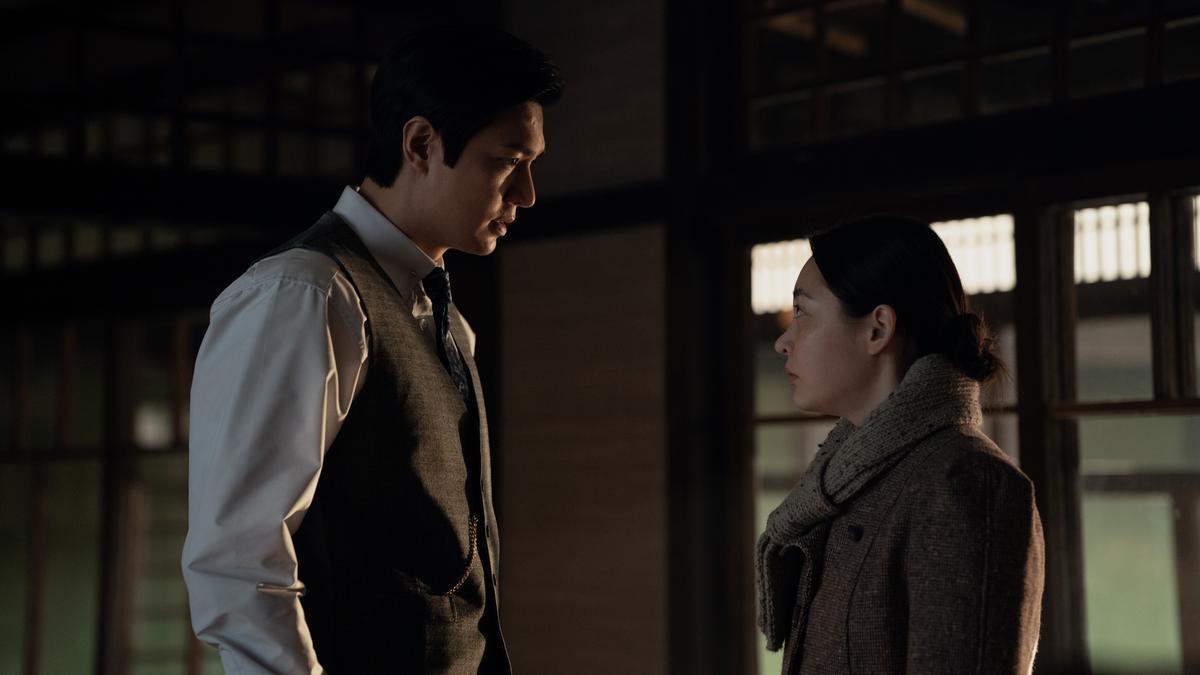
Early in the first episode of season two of “Pachinko,” the viewers are immersed in a historical backdrop as American fighter planes drop pamphlets urging Japanese residents to petition the emperor to halt the brutal war. It’s the year 1945, and the city of Osaka is saturated with reminders of World War II and the imminent threat of bombing. For Sunja and her small family, this looming uncertainty brings an overwhelming sense of disquietude.
Based on the critically acclaimed best-selling novel of the same name by Min Jin Lee, “Pachinko” made its highly anticipated debut in 2022. The first season, consisting of eight episodes, diverged from the book’s linear narrative. Instead, it intertwined two timelines: one chronicling Sunja’s life in Korea and Japan during World War II, and another focusing on her grandson Solomon Baek’s return to Japan from New York in 1989 for a professional assignment.
In the opening season, viewers saw Sunja grappling with a sudden pregnancy and adapting to life in Osaka after leaving Japanese-occupied Korea with her husband, Baek Isak (Steve Sanghyun Noh). As the story progresses into season two, Sunja finds herself confronting even greater challenges. Years have passed since Isak was imprisoned for aiding laborers fighting for fair wages. Her brother-in-law Yoseb (Han Joon-woo) works in a factory in Nagasaki, leaving Sunja and her sister-in-law Kyunghee (Jung Eun-chae) worried about their children’s survival, given the scarcity of food and the worm-infested rations they must endure. Demonstrating steely resolve, Sunja declares, “I am good at selling,” and sets out to risk her life selling rice wine in the illegal black market.
In parallel, the narrative contrasts the tumultuous 1940s with the late 1980s, where Solomon’s father Mozasu (Soji Arai) is preparing to open a new, glitzy Pachinko Parlor. Solomon, having left his previous job after a failed business deal, is now focused on bringing together investors for a fresh project. This new endeavor shows his continuing professional aspirations despite the personal and racial struggles that persist, drawing a stark comparison to the hardships faced by his grandmother Sunja.
The first episode of season two continues the meaningful storytelling that characterized the initial season. The show takes its time, carefully unfolding the characters’ arcs without rushing, a feature that many fans appreciate given the ever-present risk of television series not being renewed.
. This unhurried yet engaging approach allows viewers to see the evolution of Sunja’s family over the years. Minha Kim’s portrayal of Sunja vividly captures a mixture of helplessness and determination, shedding light on her resolve to provide for her sons, Noa (Kim Kang-hoon) and Mozasu (Eunseong Kwon).
Young Mozasu is depicted as eager and combative, ready to confront any enemies, while Noa carries a heavy burden of the world’s prejudices on his young shoulders, stemming from the discrimination faced by zainichis (Koreans in Japan). This tension is mirrored in Solomon’s 1989 timeline, where he encounters a racially charged outburst from a Japanese bakery owner directed at his grandmother. In an emotional moment, Solomon asserts his credentials by shouting, “I’m from Yale University,” signifying the perennial struggle against racism across generations.
Jin Ha masterfully portrays Solomon as a character on edge, a ticking time bomb, eager for a fresh start to pursue his ambitions. His story arc, no longer strictly aligned with the book, promises exciting new developments as the season progresses.
Season one also provided deeper insight into Koh Hansu, a character whose relationship with Sunja set major plot events in motion. Played by Lee Min-ho in what critics hail as his career-best role, Hansu’s backstory during the 1923 Great Kanto Earthquake was explored in depth. His character remains a significant presence, watching over Sunja and her sons from the shadows.
Showrunner Soo Hugh has frequently highlighted “Pachinko’s” universal themes of love, loss, grief, and survival that resonate across generations. The series’ celebrated storytelling avoids falling into melodrama, keeping emotional theatrics to a minimum. Despite the vast narrative canvas and grand scale, “Pachinko” retains its poignant and subtly impactful storytelling as it ventures into the second season. With seven episodes to follow, the series holds promise for yet another compelling installment.
“Pachinko” season two is currently streaming on Apple TV+, with new episodes released every Friday.












